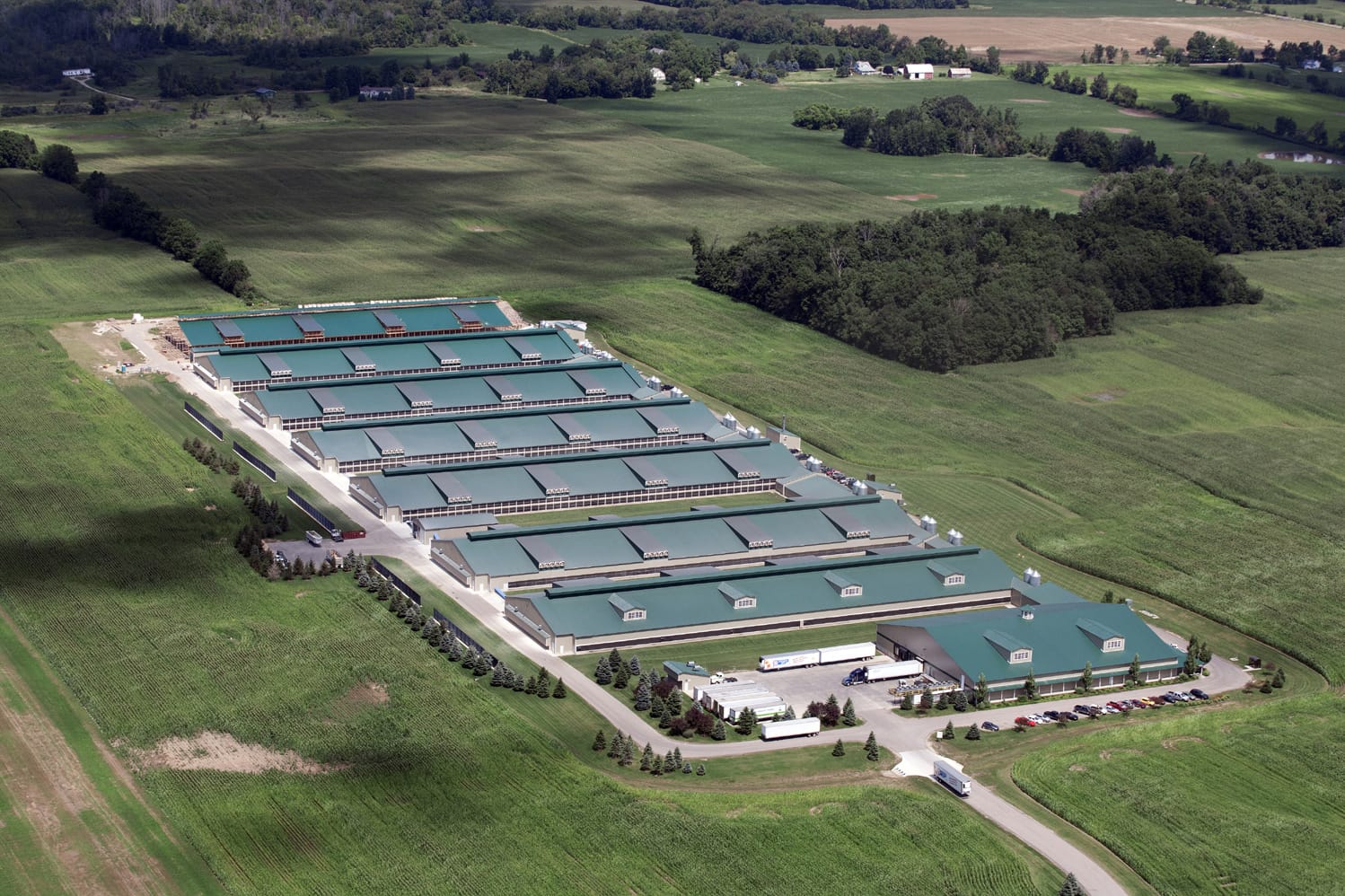 |
Michigan managing nearly two million birds (Click on image for larger version) |
Almost a decade after The Cornucopia Institute brought public scrutiny to the issue of giant “factory farms” producing organic eggs and poultry, the USDA has finally released its long-awaited draft rule to constrain abuses in the industry. Cornucopia has alleged for years that clear violations of the current federal organic regulations were occurring and not being enforced by the National Organic Program (NOP).
For background see Cornucopia’s in-depth report (updated 2015), Scrambled Eggs: https://www.cornucopia.org/scrambled-eggs-separating-factory-farm-egg-production-from-authentic-organic-agriculture
Comments from Mark Kastel, Senior Farm Policy Analyst at The Cornucopia Institute, a farm policy research group:
The original National Organic Standards Board (NOSB) recommendation for animal welfare standards (released in 2011), was years in the making through a collaborative public process. The USDA has now taken five more years to publish this draft rule (and its phase-in could take an additional three to five years).
The NOSB process was led by an agribusiness employee of the CROPP Cooperative (Organic Valley), one of the largest name-brand producers of organic eggs. The legality of the NOSB livestock committee chair, during her tenure on the board and during the animal welfare debate, was suspect since she sat in the seat that Congress had specifically designated for an individual who “owns or operates an organic farm.” This individual, at the time, neither owned nor operated an organic farm and was, instead, a full-time employee of CROPP.
This apparent conflict of interest led to some of the industry-friendly deficiencies in the draft rule. Currently the board president of the industry’s largest lobby group, the Organic Trade Association (OTA), is the chief legal counsel at CROPP/Organic Valley.
This proposed rule is guaranteed to make all segments of the poultry industry unhappy. It will eventually outlaw the confinement style of egg production that is producing as much as 90% of organic eggs today. It clearly outlaws small porches which “factory farms” have been substituting for legitimate outdoor access (required by the current regulations). These porches are patently illegal, but the USDA, in deference to corporate interests, has been unwilling to enforce the law and require that hens be allowed outside — waiting for this new rule, rather than enforcing the current law, has economically disadvantaged many ethical farmers.
The timeline the USDA has suggested for implementing these proposed animal welfare standards provides for an unprecedented five-year phase-out from the date the final rule is published. Because of a number of controversial elements included in the draft, which are sure to elicit a strong response from organic industry stakeholders during the public comment process, we could be talking about six to eight years until final implementation.
True animal welfare proponents, and ethical organic family farm operators, will be disappointed that the draft rule incorporates the NOSB recommendation for just two square feet per bird outdoors. Organic Valley’s own corporate standards require their farmers to provide five square feet, while the European Union requires 43 square feet per bird. The most reputable animal welfare organizations mandate 108 square feet per bird.
Not only is two square feet insufficient for poultry to exhibit their natural behaviors outdoors (the current requirement in the law), the USDA proposal does not require vegetative cover. In fact the draft rule proposes that 50% of the outdoor space could be covered with concrete or gravel.
The recommendation is sure to cause controversy. Although the two-square-feet requirement outside will disappoint advocates of true organic integrity, the draft rule also requires two square feet of space indoors. In this case, substantially more space than traditionally given by commercial producers (for example, Organic Valley currently requires 1.75 square feet, far above the most common industry standard of 1.2 square feet). The draft will also require a minimum of 30% open floor space as opposed to slotted flooring, which could outlaw aviary systems.
Cornucopia expects very vigorous commenting from both the industrial-scale producers (the majority of the current industry), along with family-scale farmers and public interest groups. Because of the deficiencies this draft represents, in carrying out the spirit and letter of the Organic Foods Production Act, and the economic burden implementation will place on the industrial sector, the amount of comments are likely to require the publication of another draft rule.
It should be noted that the family farm sector, producing eggs and poultry, is currently being competitively damaged by the scofflaw operators and USDA’s lack of enforcement.
Because of the importance of this rule, The Cornucopia Institute immediately calls upon the Secretary of Agriculture to extend the public comment period. A disproportionately large percentage of the nation’s organic eggs and meat birds are produced by Amish and Mennonite families, many of whom do not have access to the internet. Cornucopia’s members, thought to include more certified organic farmers than any other group, include many Amish and Mennonite families who produce certified organic livestock and eggs.
It will take some time to analyze the proposed draft. A sufficient amount of time needs to be provided to these hard-working families during the planting season. Cornucopia and other public interest groups need to prepare and mail briefing information, and farmers need to be allowed enough time to review the new rule and return their comments, by return mail, to the USDA. A 60-day comment period is insufficient and will disenfranchise many of these farmers.
Once published in the Federal Register, the official version of the draft rule will be available at www.regulations.gov. For now the USDA has provided a link to the proposed rule here: Proposed Rule and Supporting Information

